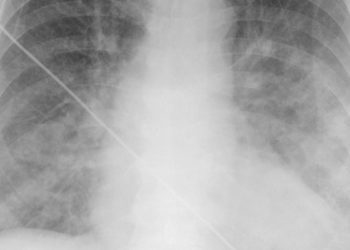V-HeFT II: Enalapril reduces mortality in heart failure when compared to hydralazine and isosorbide [Classics Series]
1. In patients with heart failure, patients treated with enalapril experienced significantly lower mortality at 2-years compared to patients on hydralazine and isosorbide dinitrate.
2. Patients treated with enalapril experienced significantly higher serum creatinine levels and higher potassium levels than patients on the combination of hydralazine and isosorbide dinitrate.
Original Date of Publication: August 1991
Study Rundown: Heart failure is a common condition where the heart cannot pump adequately to meet the body’s metabolic demands. It has been estimated that almost 6 million people in the United States suffer from heart failure, and the prevalence continues to rise steadily. Over the past few decades, numerous advances have been made in the treatment of heart failure. The Veterans Administration Cooperative Vasodilator-Heart Failure Trial I (V-HeFT I), completed in 1985, was one of the first randomized trials to demonstrate a mortality benefit with heart failure therapy. It showed that treating heart failure patients with hydralazine and isosorbide dinitrate significantly reduced their mortality when compared with placebo. Subsequently, the CONSENSUS trial demonstrated that enalapril significantly reduced mortality in patients with severe heart failure. The V-HeFT II sought to directly compare enalapril with the combination of hydralazine and isosorbide dinitrate in patients with heart failure who were also being treated with digoxin and diuretics. In summary, patients being treated with enalapril experienced significantly lower mortality at 2-years when compared with those on hydralazine and isosorbide dinitrate. Over the entire follow-up period, however, there was no significant difference between the two groups in terms of all-cause mortality. Patients being treated with enalapril were significantly more likely to experience rises in serum creatinine levels and had higher potassium levels than patients on the combination.
Click to read the study in NEJM
In-Depth [randomized controlled trial]: This randomized trial was conducted at 13 participating Veterans Affairs medical centers. Patients were eligible for the study if they were between 18 and 75 years old and had evidence of cardiac dysfunction (i.e., cardiothoracic ratio ≥0.55 on chest radiography, left ventricle internal diameter >2.7 cm/m2 of body-surface area at diastole on echocardiography, or ejection fraction <0.45 on radionuclide imaging) with reduced exercise tolerance. Patients were excluded if they had myocardial infarction or cardiac surgery in the 3 months prior to randomization, angina pectoris limiting exercise or requiring long-term medical therapy, serious obstructive valvular disease, obstructive lung disease, or other diseases to limit life expectancy. Eligible patients were randomized to treatment with enalapril (i.e., starting at 5 mg daily, titrated up to 20 mg daily) or the combination of hydralazine (i.e., starting at 37.5 mg daily, titrated up to 300 mg daily) and isosorbide (i.e., starting at 40 mg daily, titrated up to 160 mg daily). The primary endpoint was 2-year mortality.
A total of 804 patients were enrolled and randomized as part of the trial. Average follow-up time for the trial was 2.5 years (range 0.5-5.7 years). At 2 years, mortality was significantly lower in the enalapril group as compared to those taking hydralazine and isosorbide (p = 0.016). There were no significant differences between the enalapril and hydralazine/isosorbide groups in all-cause mortality for the duration of the study period (32.8% vs. 38.2%, p = 0.08). Further analysis of the mortality data demonstrated significantly lower risk of sudden death without warning (p = 0.015) and with warning (p = 0.032). There were no significant differences between the two groups in the rates of hospitalization for heart failure. Patients in the enalapril group experienced significantly higher rates of serum creatinine rise after 1-year (p = 0.02) and significantly higher potassium levels (p < 0.01) than patients treated with hydralazine and isosorbide.
Image: PD
©2015 2 Minute Medicine, Inc. All rights reserved. No works may be reproduced without expressed written consent from 2 Minute Medicine, Inc. Inquire about licensing here. No article should be construed as medical advice and is not intended as such by the authors or by 2 Minute Medicine, Inc.






